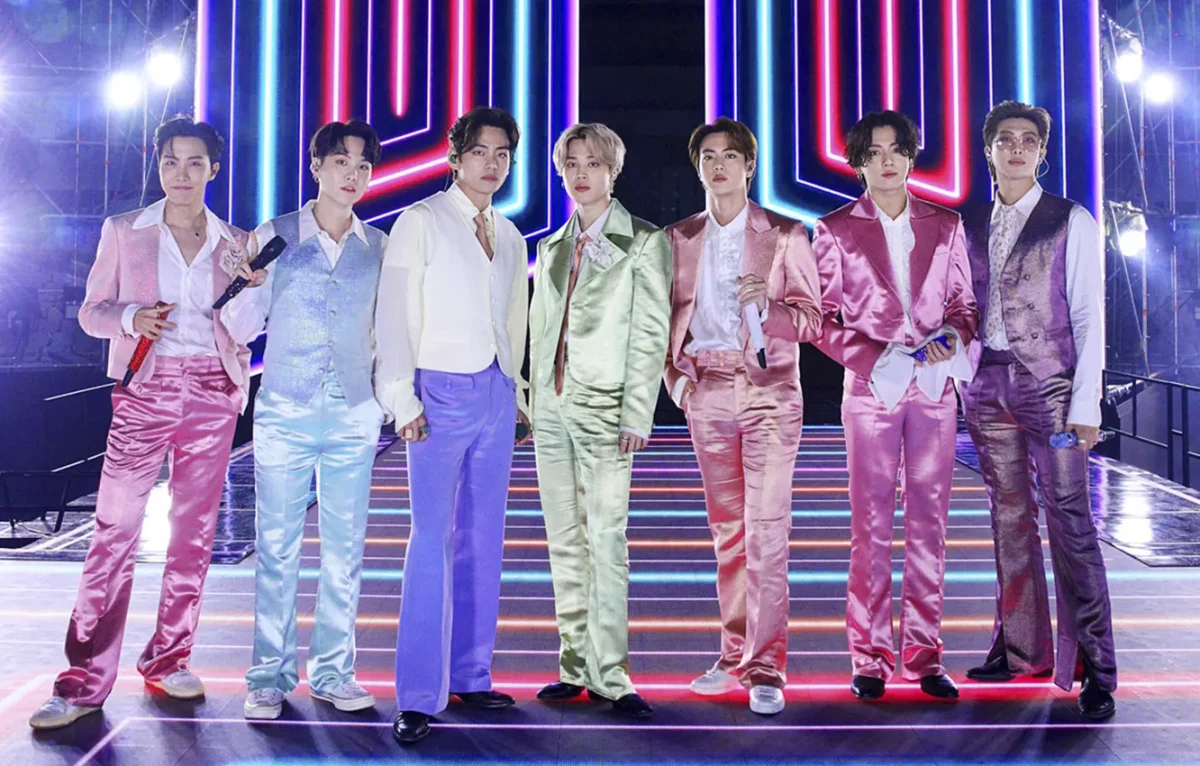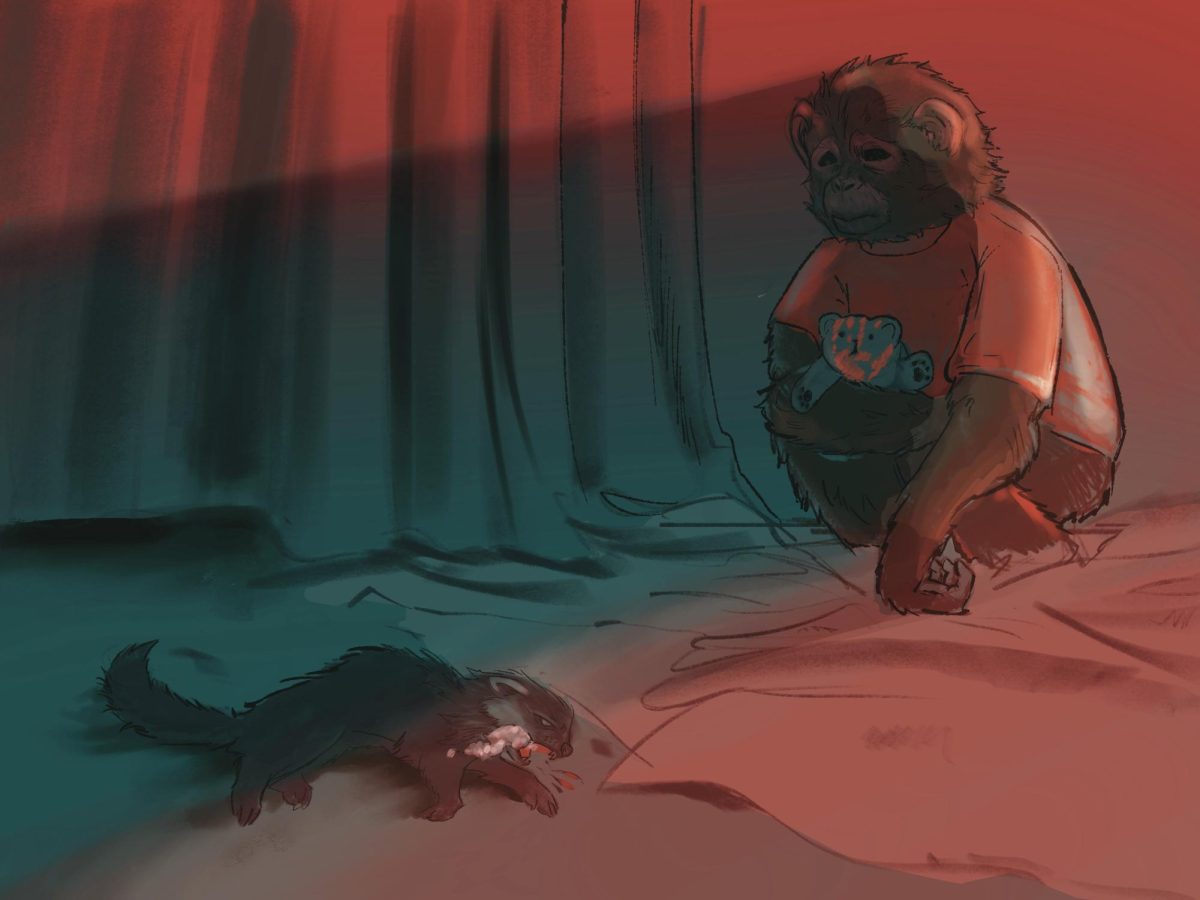Glover uses this album to explore themes of self-love, individuality and finding your place in the machine. Taking on the role as the executive producer of the album, that Atlanta-born rapper and singer-songwriter also creates a very noisy and often erratic atmosphere, leading to an album that in many ways feels like it comes from the future.
3.15.20 is an amalgamation of Glover’s previous two records Awaken, My Love! and Because the Internet, in that it explores several sounds and genres, including hip-hop, R&B, and funk. The album does so in a very modern, futuristic and experimental way.
Separating itself from many modern hip-hop records, 3.15.20 is much more cohesive album then just a collection of songs. The songs transition into each other and the aesthetic of each track is one and the same, creating a record that is very much the sum of its parts. All but two of the songs on this album begin with numbers that indicate where in the album the song starts, beginning with “0.00.”
The opening track serves as a very cinematic introduction that does a fully sufficient job setting up the vibe and style of what’s to come. The next track is titled “Algorhythm,” serving as one of two songs to have a word as the title. “Algorhythm,” a play on the word algorithm, sets up the narrative drive of the album with a song that feels like a cross between the movies 1984 and Footloose.
Filled with booming drums, deep staccato vocals, and a funky groove, “Algorhythm” sets up the album’s theme of there being an algorithm people all live in and shows how it controls them. From there comes the second and final song with a verbal title: “Time.” This song features vocals from pop sensation Ariana Grande as her and Glover trade juxtaposed vocals lamenting the idea of limited time and the universal pressure of finding one’s place. Much like the proceeding track, “Time” also contains loud booming drums: however, the song does feel much less chaotic and hectic.
On the next track, “12.38,” Glover delivers a slow rap that he mixes with a few singing phrases throughout in a falsetto pitch. This song creates a steady vibe and describes an unusual romantic relationship. The voice and the flow that Glover incorporates are highly inflected from his normal tone. The song also features a verse from fellow Atlanta rapper 21 Savage, which comes as an unexpected but enjoyable moment on the album. The verse works really well in the song and fits in with the groove.
The ending outro continues more of the weird futuristic sound that the album is full of. From there, “19.10” begins with quick punky drums and a groove reminiscent of Earth, Wind & Fire’s song “September.” On this song, Glover explores what it means to be black and the lessons he learned from his father. The song fits in well sonically with the album, delivering an enjoyable dance track with lyrics that hold really important meaning.
“24.19” is the seminal point in the album, where the fictional character the record has been following finally breaks free from the algorithm. The melody hearkens back to Glover’s biggest hit, “Redbone.” On the surface, “24.19” plays out like a love song to Glover’s wife, however, in the context of the album, it serves as the character’s goodbye as he breaks free of the algorithm and enters a new world.
Ending with an audial representation of a panic attack, this song transitions into “32.22,” a song that feels very animalistic and jungle-esque with its decipherable vocals and erratic drums. Following this track is “35.35,” a very catchy song with an infectious chorus. From this alone, the song sounds like a dance track, but verses explore themes of drug dealing and street violence. The song has a bit of a country vibe to it as well. The outro of the song is a repeat of the chorus, with the production transitioning to a much more trap-inspired, somber sound that then becomes more futuristic.
“39.28” is the most stripped back and quiet track on the album. The song begins with a layered a capella chorus and introductory verse. Halfway through the first verse, the production begins to work its way into the song, as a luscious piano appears when there are vocals for it to back. It’s definitely the most simply produced song on this album but the sound is still extremely full.
On “42.26,” Glover’s 2018 single “Feels Like Summer,” is repackaged with a new and stranger introduction not found on the original song. The vocals in this song are similar to those on “12.38” and recreates that sunny island feeling. Even though it’s a single released almost two years before the album’s release, it still fits in pretty perfectly with the vibe of the album. Glover’s refrain “I know, /Oh, I know you know that pain” is a sonic callback to his 2011 song “That Power” off his debut album Camp both in lyrical content, melody and pitch.
“47.48” contains a funk groove and flow with a deep and hypnotic vocal performance. It feels like the heart and soul of classic funk music mixed with modern aesthetics and styles. The lyrics seem like Glover is singing to his children and that theory holds weight, as Glover’s son makes an appearance at the end listing things that he loves while talking to his dad. This closing discussion goes goes over ideas of self-love as the boy says he loves himself and asks his dad if he also loves himself, to which Glover says he does, a stark contrast to the repressed manner this album began under.
The final track in the album, “54.39,” starts off with a very impassioned and ecstatic flow of the chorus championing love being everywhere.
The flow and singing feeds to that feeling very well, especially when Glover hits really high screams resembling those of 20th century funk singer James Brown. The ending of the song creates a much freer, positive and confident feeling indicating the character has fully broken free of the algorithm and reached a point of individuality and creative expressionism.
The final outro begins with Glover saying to let everything out and eads into a very emphatic and loud ending about dancing, getting loose, and living the life you want to. The final noise is a quiet holding tone that mimics the tone the album began on.
On 3.15.20, Childish Gambino delivers an album that truly feels like the buildup of his musical career to this point. Borrowing themes, and melodies from his early work, Glover creates a brand-new album filled with a compelling narrative and an engaging, unique and experimental sound. Individually, the songs may not have as much replay value as those from Because the Internet — with its viral rap hits like “Sweatpants” or “3005” — but what 3.15.20 does have is an incredibly well thought-put and put-together album that challenges societal norms, creative expression and modern hip hop.







